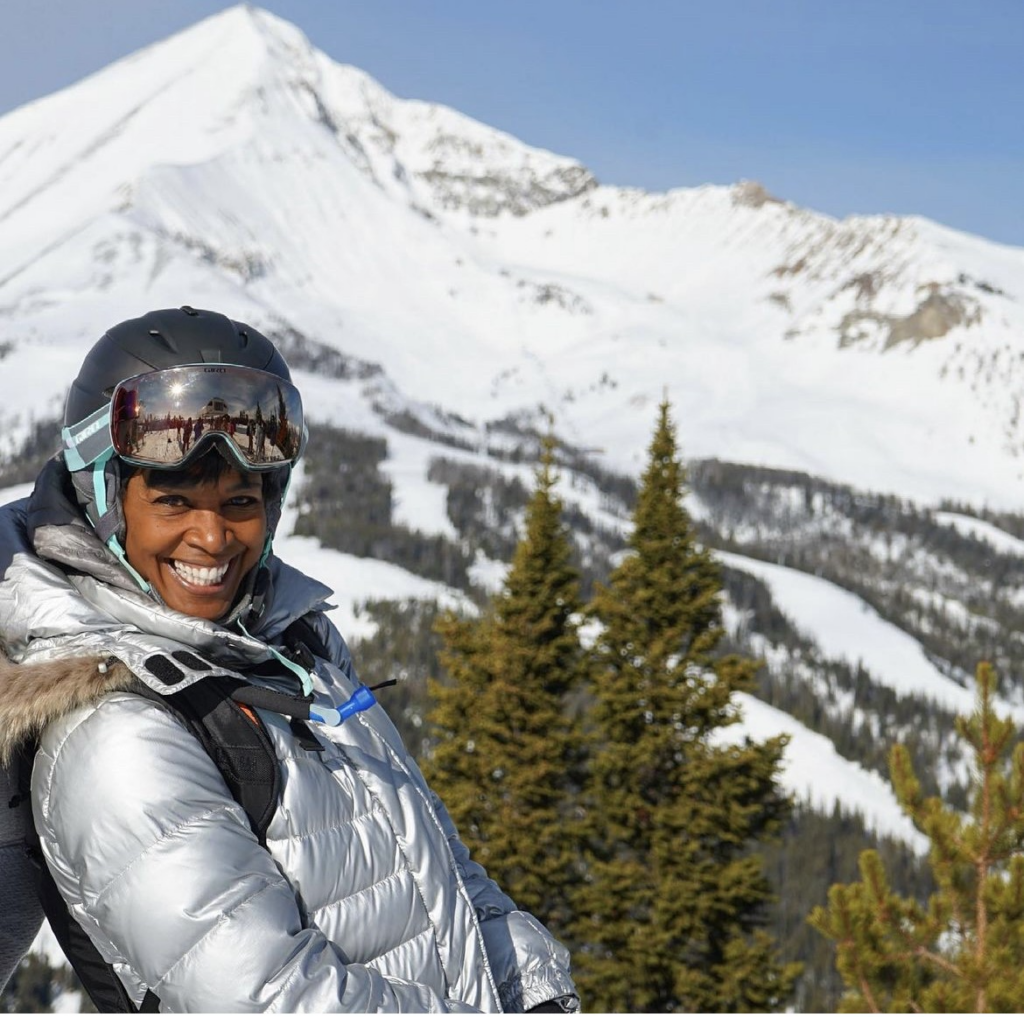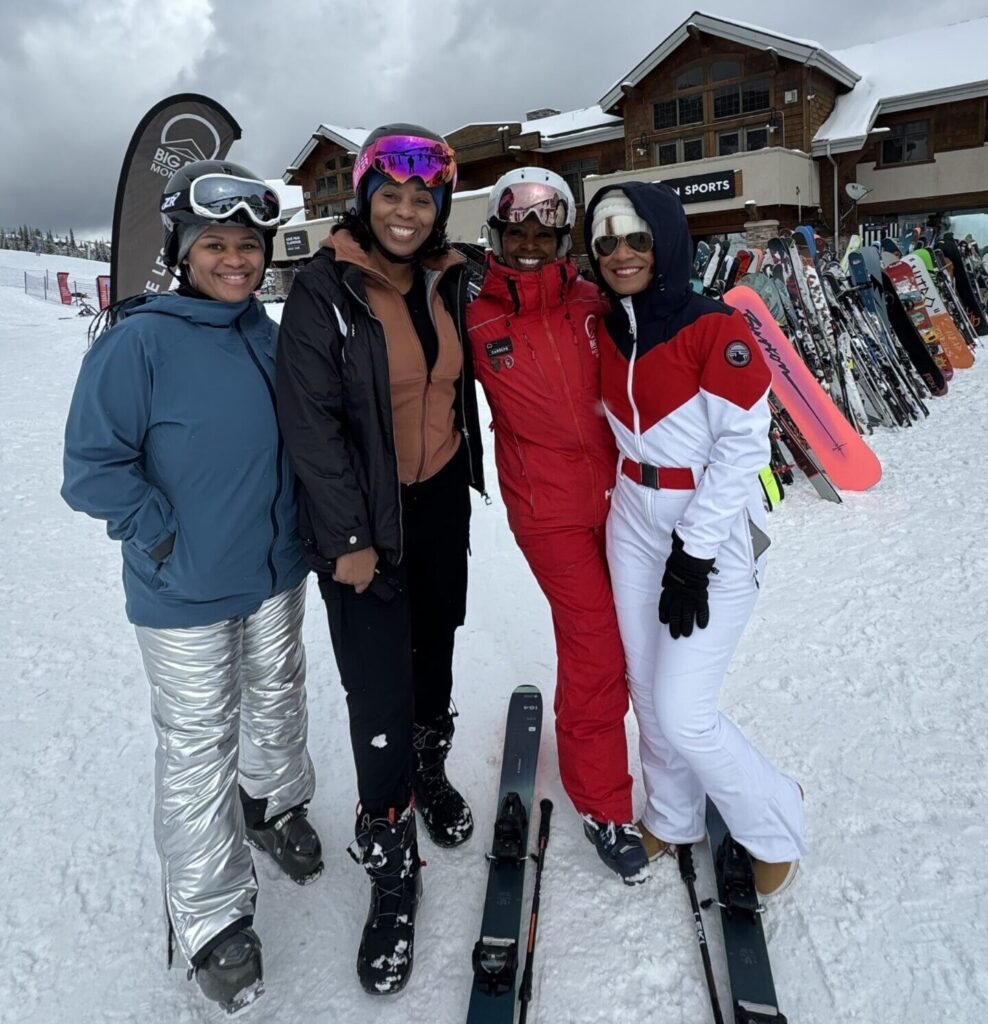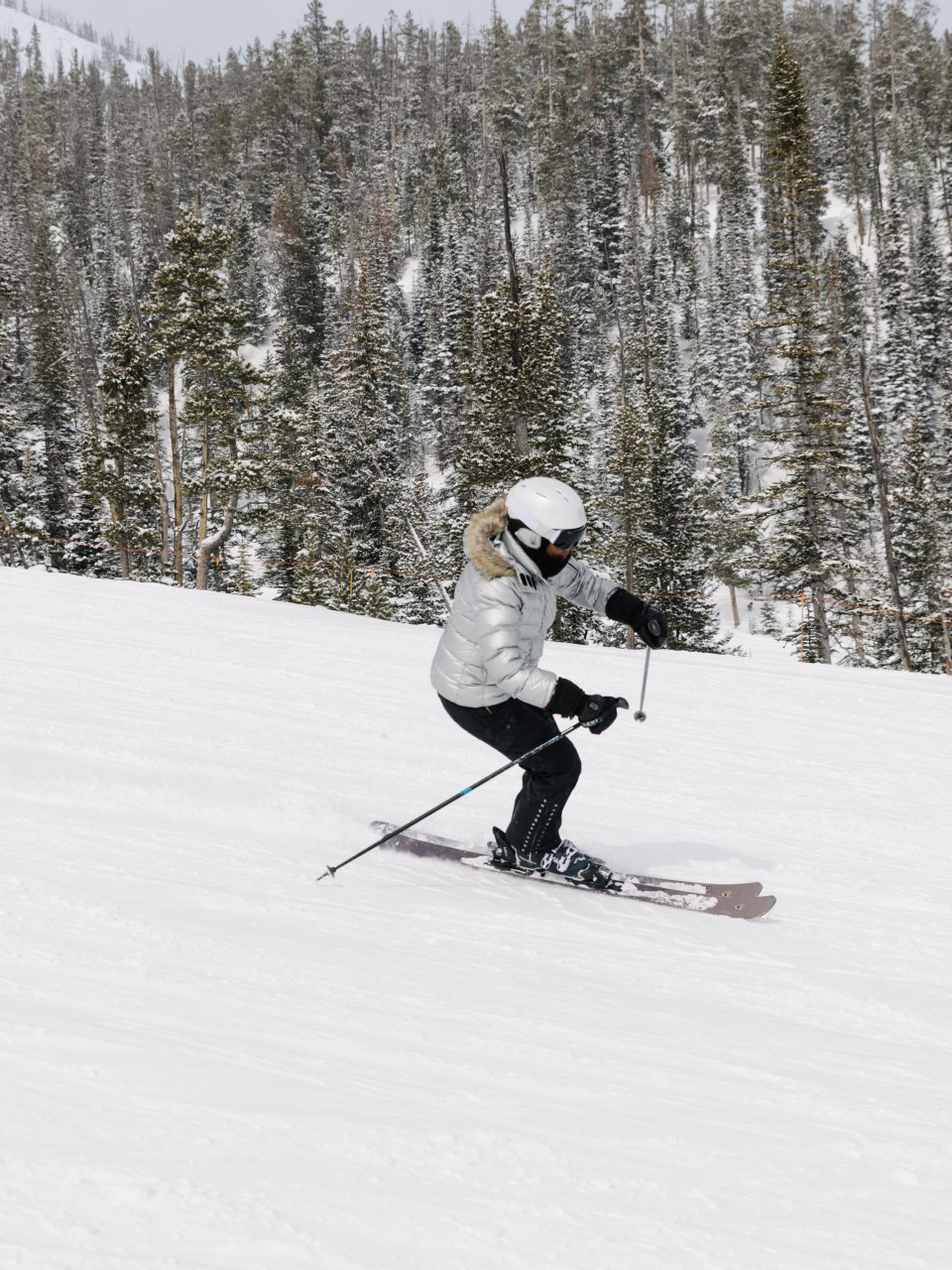Industry marketing would lead us to believe that Black people aren’t interested in snowsports like skiing and snowboarding. That couldn’t be further from the truth.
“If we’re being honest, skiing as a means of transportation started on the continent of Africa,” National Brotherhood of Snowsports (NBS) president Henri Rivers said during an in-person press conference. “There are arguments that it first originated in parts of Asia and Europe, but no, like most other things, it was first utilized on the mother continent.”
Rivers leads the annual NBS summit, aimed at getting more Black people inspired by this history and, in turn, more connected to snowsports. For over a week (this year from February 24 to March 2), hundreds of Black men, women and children take on the snowy mountains of Big Sky, Montana for fellowship and organized competitions. It’s a strong start to improving the industry’s dismal representation: A 2021-2022 survey by the National Ski Areas Association found that only 1.5% of skiers at resorts were Black.
It wasn’t until 1988 that we even saw Seba Johnson, the first documented Black woman to compete in a skiing category during the Winter Olympics. But several Black women around the country are taking up more space on the slopes—and looking good while doing it.
Carolyn Stempler is an avid skier, proud NBS member and the current executive director of the Big Sky-based Women of Winter, an organization that provides scholarships to women of color so they can earn certifications to become ski and snowboard instructors around the nation. Inspired by leaders who came before her, like Roxanne Garlington, she’s been skiing for decades and now works to make a bigger impact on the snowsports industry in her own way.

“I’ll be honest, a guy got me interested in skiing,” she shares with Sweet July. “My girlfriend told me about the NBS summit one year in my 20s, and that a bunch of people were going. I found out that my crush at the time was going, and that’s what got me into skiing. She wouldn’t have predicted skiing would become a serious passion, but it did. “Now, for me, it’s about giving back and trying to break through the barrier of making other women of color feel welcomed in this industry and at these resorts. We need to do better as far as creating a more inclusive environment.”
Now in her 60s, Stempler is still regularly hitting the slopes with her family and also works at Big Sky Resort as an instructor, where she provides private lessons to children and sometimes adults who are beginning their journeys. On any given day, you can find her demonstrating the “pizza pie, French fry” method for her students. Always sporting a bold lipstick or a fun bejeweled design around her eyes, she wants her clients to walk away with the memory that a Black woman was the first one who made them fall in love with the slopes.
Colorado-based skier Jennifer Knox reveals she didn’t always appreciate the sport. For one, it’s an expensive hobby. “I tried skiing once while in Denver and I liked it, but I couldn’t afford an actual pass to do it regularly,” she says, highlighting another barrier to the world of snowsports. “So I saved up to eventually get one. During last year’s [NBS] summit, I learned about the never ever race and wanted to enter.” She successfully participated in the annual “never ever” race last, an event for skiers and snowboarders that want to try their hand at competing without judgment, and competed in her first novice race this year.
For Knox, skiing is a way to continue staying active in colder months. “I already love running and hiking in warmer months, so I thought that skiing was a great way to remain active in the winter while still being outdoors,” she says. “I love it!”
Contrary to most stories about entering snowsports in adulthood, Tia Lofton’s journey began when she was around 14 years old. A military brat, her family often moved around. When they landed in Northern California, near Tahoe, Lofton was exposed to winter sports merely because of her surroundings and the new friends she’d made.
“When we were in Tahoe, all my friends went skiing, but none of them looked like me,” says Lofton. “Of course, we had on helmets and goggles, but when I would take them off, I would get stares. They were startled at this little Black girl zipping down the mountain, and I would simply give a look like, ‘yes, we do ski and don’t be startled.’”

During her college years, a friend informed Lofton about the National Brotherhood of Snowsports and its mission to collectively get more Black folk on the mountains and more young Black athletes on podiums. She then joined the organization, which turned into what she says is now also her family. She’s traveled to Chile, Argentina, New Zealand, Japan and more in the name of skiing. And she doesn’t plan on giving it up anytime soon.
Lofton, now based in DC, believes it would benefit the industry to market more to Black women, who are not only big spenders but also trend setters. She recently took matters into her own hands, with a winter gear brand called Urban Ski Wear that makes clothing geared toward Black snow-sport athletes.
“My personal mission is to paint the mountain brown,” adds Lofton. “And in the process, we’re also going to be fashionable and fly.”







